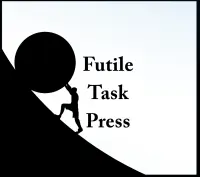Are you stuck in a submitting rut? Just sending shit out over and over without a bite? Are you thinking about just saying to hell with it and going the self-publishing route?
There’s another way. If you give me a few minutes of your time, I’ll present another option that will allow you to publish while also saving you the stigma of self-publishing.
Welcome to the new world of Self-Indie Publishing
Why The Stigma?
Self-publishing is stigmatized by a few different groups.
One group is made up of traditional publishers, which includes big publishers and indies. A traditional publisher’s existence is threatened by a healthy and vibrant market of self-published books. In a time when bookstore and library browsing is WAY down, and an age where you, as someone submitting for publication, are expected to already have your own social media following, do your own marketing, and push those copies; traditional publishers are fighting tooth and nail to prove they still have a place, that what they’re offering you is valuable. They DO offer things of value, but not all of the things, and rather than trying to demonstrate their value, some traditional publishers spend time trashing the self-pub world.
I get suspicious because in ALL REALMS OTHER THAN PUBLISHING, we love mom and pop! We trust mom and pop to make us nice meals, we prefer mom and pop stores when it comes to visual arts, we love DIY, local artists. But when it comes to books, mom and pop can go fuck themselves, and you've got to wonder why...
A more surprising group of detractors is traditionally-published authors. You are...not a threat to them. They’re just tired of going to Thanksgiving and having an uncle say, “Oh, yeah, this lady I met on OkCupid is a published author, too. She wrote something about a group of unicorns who go to a wizard school. You and her have a lot in common.”
The most outspoken bootstrapper-hater on the planet who is looking to dismantle power structures wherever they appear, if they’re a published author, when it comes to publishing, they flip. All of a sudden power structures exist to protect people from THE HORRORS OF BAD BOOKS. You should do what they did, pull yourself up by your bootstraps, work harder on writing, work harder on submitting, and understand that this is totally a merit-based system that will reward your combination of good writing and hard work submitting.
Someone who doesn’t believe that merit-based systems work, and someone who uses bootstrapper as a slur, will 100% tell you that the answer is to work harder within the guidelines of the existing system.
Published authors, I can already hear you screaming. But let me just say a few things to you all:
If you’re already published, keep going. You do you. You’ll be happy if you look back on a life of great work. I’d wager you won’t be as happy if you look back on a life spent gatekeeping and dunking on self-pub folks.

And let’s be honest with each other. A LOT of you got your start by publishing with an “indie” that was really a one-person operation run by someone you knew personally. Like, a lot of you started out this way. I’ve seen the names, I know how this works. I publish you in my journal, you publish me in your anthology. It’s a little bit of a circle jerk out there, and by the way, I’M FINE WITH THAT. Circle jerks get a bad name, but that’s because they’re no fun when you’re outside the circle. As long as you write a good book, jerk away! Just remember, when you’re looking down on someone trying to escape the self pub stigma, gettting your start with a micro press run by a literature buddy is awfully close to self-pub in all but the technicalities.
Ethics
I consider myself a mostly ethical person. I’m generally a rule-follower. However, I think it’s permissable to skirt the rules in situations where the rules are unfair, and especially if nobody gets hurt.
Are the rules of traditional publishing unfair? Probably. Publishers hold all the cards.
If you have a problem with the ethics here, let me pitch it this way: I’m suggesting a method by which the power of the publication industry can be redistributed among a greater number of people as opposed to having the power siloed among very few.
Sound like a familiar pitch?
Is anybody going to get hurt by what I’m suggesting?
Some might argue that readers will be tricked into reading a self-pub book, thinking it’s from a publisher. I think this is fine.
If, as many say, self-pub books stink because they have bad editing and bad covers, then there’s no chance readers will get tricked, right? If it’s totally obvious, the difference in quality, then there’s nothing to worry about.
If the book is good, then yes, a reader got duped. But the only thing they were tricked out of was their own false ideas about what a self-published book really is.
The Plan
I’m going to outline a plan I call the “Self-Indie Plan.” What you’re going to do is basically set up a one-person “publishing house” for your book that appears, to most outsiders, to be a legit indie publisher not owned and operated by you.
Step 1: Decide your level of secrecy
Do you want this to be iron clad, or do you want someone with 15 minutes of internet research to be able to declare that your jig is up?
I very much doubt that a lot of people would go to the trouble to, say, check the registration documents for an LLC to discover that a publisher was a one-person operation. So you might only need a small amount of cloaking to convince everyone that you’re on the level.
But hey, maybe doing it the super tactical way is just a little more fun. Besides, you’ll learn something.
Step 2: Come up with a name
Your fake publishing house needs a name.
It can be to your advantage to come up with a name that’s sorta generic. If you’re looking to put out a horror novel, something like Edgy Darkness Press is fantastic. Because when someone goes to look you up, it’s hard to find something that’s not very clever.
If you’re going literary, name it after any street in Manhattan.
Another way to do it, call your publishing house something like Bench Press Press or Standing Vertical Press or Drill Press. Because these are popular phrases with the word “press” in them, you’ll be obscured in the land of bro science.
Put some thought into a thoughtless name, a name that if people struggle to locate, they’ll blame themselves.
 Step 3: Come up with a logo
Step 3: Come up with a logo
Something simple. Don’t overthink it. Look at Random House. Look at Penguin. Overthinking it just makes it obvious you’re a faker. A simple outline image will be totally fine.
Step 4: Get an Address
This is the first optional step depending on your privacy concerns, so feel free to drop this according to your needs. If you don’t think anyone will look into this too hard, you can use your home address.
The next step up is using a friend’s address. Someone willing to pass on some mail.
I recommend using a virtual address. There are plenty of services that will give you a real, physical address in your state.
You can also use a PO Box, but that can cause some problems when you decide to...
Step 5: Form an LLC
This is boring, but it’s WAY easier than you think. I did mine in about 20 minutes. The reason you form an LLC is two-fold: One, the LL’s in LLC mean “limited liability.” So let’s say you start your hypotheticall small press and someone sues you. They can sue you for company assets, but if you have a retirement account from your 9 to 5, that stays with you.
The other reason is that you can use your LLC as the name for everything else. So you can put that on your web space, your other application-y stuff, and do all your business as one LLC, which keeps your name better buried.
Some states don’t allow virtual or PO Box addresses for LLC formation. Look into it where you are.
Step 6: Web Site
You need a basic web site. A main page, a page for the books you sell, one of those dumbass “About Us” pages, and maybe a blog. Put something about submissions somewhere, just make sure to tell everyone that you are not accepting submissions at this time.
This does not need to be amazing. You DO need a good URL, however, for verisimilitude. If your URL has “squarespace” or “blog” or something like that in it, you’re missing the point.
That said, it can be to your advantage if the web site doesn’t look TOO good. If you’ve submitted for publication to small presses, academic presses, and so on, you know what I’m talking about. If you don’t, look through a bunch and you’ll get the idea pretty quick.
Step 7: Build a Past
Most blogs will allow you to backdate a post, and if you can’t do that, just add the date in manually, change the font and size accordingly, and you should be good to go. Go back to about 2016. You only need about half a dozen posts. Spread them out, and make each one about how this time you’re going to commit more to this blog thing. This just makes it look like your press didn’t pop up yesterday.
I also recommend setting up a figurehead for your press. Make it an older person who isn’t interested in technology and social media. Get them an AOL contact email.
 Step 8: Laying more Past
Step 8: Laying more Past
Okay, on your web page where you show your catalog, post up some fake books. Seriously, get some fake titles, fake covers, and fake author names, post ‘em up, and then put a black bar that says SOLD OUT across each one. You can even add some text at the top of the page that says, “Such and such press does limited run pressings, after which rights revert to the authors.”
Again, don’t get cute. Don’t make things that look TOO fake. Don’t make it too joke-y.
If you don’t have the ability to make realistic covers, just have a generic “SOLD OUT” cover image for the books that are sold out.
Step 9: Social
Go ahead and grab the Twitter/FB/Instagram for your stuff. You don’t need to post anything. Just get your logo in there and the URL in the bio. Remember, if you post stuff, it’ll be dated, so people will know that there’s been some funniness going on.
Step 10: The Explanation
Okay, if you want to lay in an explanation for why you don’t have any activity on social, here are a couple options:
The Takeover: concoct a story in the blog, then throw it out on social. So, your first post everywhere is something like “The story thus far,” then you link back to your site where you say, “A small press is a passion project, blah blah blah. We were friends, then business partners, and then things fell apart. I don’t want to get into details, but it was not an amicable split blah blah blah. At the end of the day, what matters is that I’ve recently got control of all things [NAME OF PRESS] and we’re looking to the future!”
The New Hire: Here’s your first post: “Hi, my name is Maddie. I’m working on some eMarketing for [NAME OF PRESS]. [FIGUREHEAD OF PRESS] is pretty anti-social-media (as many of you know, lol), but in the interest of doing right by our authors, I’ve been brought on board to handle social media. So plan on seeing a lot more of [NAME OF PRESS] around here in the future!”
Step 11: Get Your Book On There
Just make sure your book doesn’t look TOO amazing compared to the other offerings from the press. You'll have to put in some fake work to make sure the previous offerings, the books themselves, look pretty decent.
Get a nice cover. AND you can’t publish through Amazon. You have to send out electronic or physical copies from somewhere else. If it’s Amazon’s publishing, the jig is up.
Step 12: The Next Book
Now you’ve got a book published by a real press! So when you go to publish, that goes on your cover letter thingie. Or when you submit a short story, don’t forget to include this info!
Because the real idea here isn’t just to publish your current book, it’s your next book, and the book after that.
A Last Note On The Irresponsibility Of Doing This
I mean, sure, it’s underhanded.
But what’s the difference between someone who is a total, hated liar and someone who is admired for doing whatever it takes?
Success. The difference is whether or not you succeed.
If you do this and you succeed, imagine telling the story of how you got your start now that you’re a published author with a dozen novels under your belt. If people love your books, they won’t hate you for going the long way round to get them in the world.
So do me a favor: Only take this road if you’ve written a good book. One you’ve revised, edited, and worked your ass off to get down on paper. Take this road because you’ve got a damn good book, we all need to read it, and there’s more where that came from.
Get Bunch of Amateurs: A Search for the American Character by Jack Hitt at Bookshop or Amazon
Get Beyond The Music: How Punks are Saving the World with DIY Ethics, Skills, and Value by Joe Biel at Bookshop or Amazon

About the author
Peter Derk lives, writes, and works in Colorado. Buy him a drink and he'll talk books all day. Buy him two and he'll be happy to tell you about the horrors of being responsible for a public restroom.








